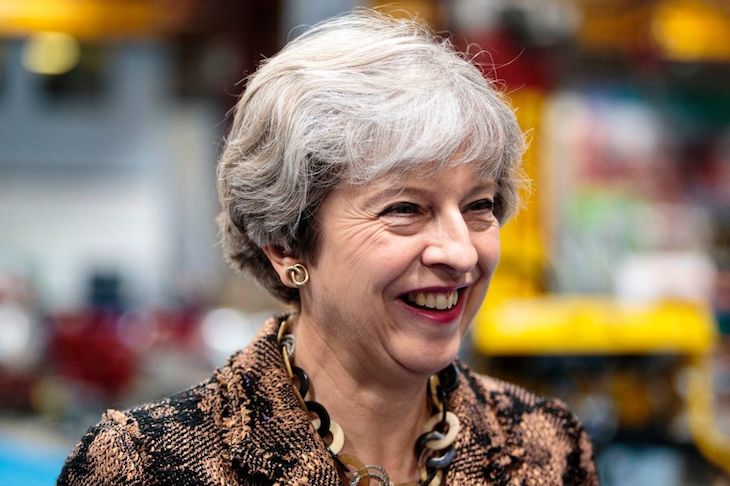At long last, something changed in the House of Commons tonight; at long last Theresa May had something that could, with only a little squinting or wishful thinking, be considered something close to a good day. Her deal, the withdrawal agreement backed by her Government and agreed with the EU, that seemed moribund less than two weeks ago, has new life. It may not be entirely healthy but it has, remarkably, enjoyed some kind of resurrection.
The choices available to parliament, and by extension the country, are becoming clearer. Now that MPs have rejected the Cooper-Boles amendment that would have placed some obstacles in the path of the default No Deal scenario, we are left with what was always most likely all along: the deal or no deal at all.
That may not be an appetising prospect but at least some delusions may be put to bed at last. The idea there will be a second referendum always seemed a programme of hope more than something that was plausible. You can put that away now. It will not be needed. It is not happening. That clears one option out the way.
Taking No Deal off the table was also always improbable unless, that is, parliament asked to extend the Article 50 process (or, still less probably, chose to revoke it altogether). That option too seems to have fallen by the wayside.
So where are we? Back, in essence, where we were: parliament has a choice to make and it must choose between the deal the Government has agreed – or some version of it – or the thrilling purity of a “clean” no deal Brexit. That, you will need no reminding, is the default position in the absence of an agreement to pursue any other policy. Rejecting everything means no deal.
But, as the Spelman amendment reminded us, no deal is the least popular of all the possibilities open to the Commons. That amendment was toothless and symbolic but, nevertheless, there we are. There is no majority for an ERG Brexit; there may yet be a majority for something else.
Until now opposition MPs have suggested that presenting this as a choice between the Prime Minister’s deal and no deal is a “false choice”. Well, it looks as though it will be a pretty real choice pretty soon. So what are MPs who think no deal the worst of all outcomes going to do? Will partisan and party loyalty continue to trump their own estimation of the national interest? Or will they find a way of recognising that, in extreme circumstances such as this, their loyalty to their party is not necessarily what the country needs or even, less probably, deserves?
Technically, of course, parliament has now agreed something: the Prime Minister should return to Brussels and ask for changes to the withdrawal agreement. Well, good luck with that. Perhaps some fancy way round it can be found but initial signs from Brussels are not encouraging.
Even if those talks fail, however, the deal on the table at present remains on the table. It has not gone away. It is undead. It is there to be returned to, no matter how much a majority of MPs dislike it. And since a majority of MPs also dislike the only plausible alternative to that deal – a no deal Brexit – a choosing time approaches.
In essence, are there more opposition MPs who can be persuaded to hold their noses and endorse a deal they dislike than there are Tory MPs who would prefer a no deal Brexit and will continue to vote against the Prime Minister’s deal?
When everything else – an election, a second referendum, an extension of Article 50 – has been ruled out and deemed impossible, whatever remains, however unpalatable, must have a chance of passing. No deal may still be the favourite in these stakes but I suspect the odds on May’s deal eventually passing, one way or the other, have shortened tonight.
The choosing time approaches. Do MPs settle or will they blunder their way into a no deal Brexit most of them think a calamitous mistake? Half a loaf of not very good bread or no bread at all? That has always seemed the most likely final choice; tonight’s events made that clearer than ever. I think.







Comments